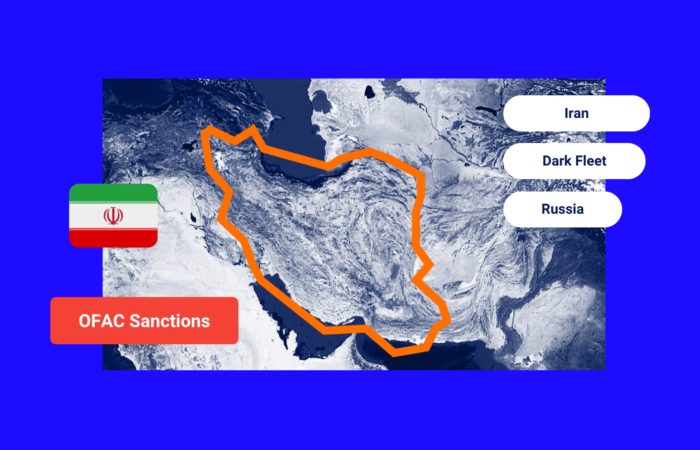Ceasefire Effect: GPS Jamming Eases and Unusual AIS Messages Reflect Maritime Caution

What’s inside?
Ceasefire Impact: GPS Jamming Trends in the Gulf
On June 24, a notable easing of tensions in the Gulf region was reflected in a drop in GPS jamming incidents affecting maritime vessels. Only 15% of vessels were impacted, a significant improvement from June 23, when 24% experienced disruptions. Simultaneously, the total number of vessels in the region declined from approximately 1,600 on June 23 to around 1,000 on June 24.
Increased Traffic Through the Strait of Hormuz
This drop in GPS jamming coincided with a ceasefire announcement, prompting a clear shift in maritime activity. When analyzing vessels greater than 1,000 GT, Windward data reveals a substantial surge in traffic traversing the crucial Strait of Hormuz. Comparing June 23 to the ceasefire day, June 24, inbound vessel traffic experienced a remarkable increase of 40%, while outbound traffic rose by 21%.
AIS Messaging as a Maritime Precaution
Despite the ceasefire and increased vessel traffic, caution remained palpable among maritime operators. A striking example occurred on June 22, when a Singapore-flagged vessel broadcasted an unusual AIS message, stating “CHINA OWNED VSL,” as it navigated through the strategically sensitive Strait of Hormuz.
These messages are likely deliberate signals aimed at mitigating potential threats from Iranian forces amid recent escalations and threats of closing the Strait.
Further highlighting this cautious behavior, Windward identified 101 non-standard AIS destination messages between June 12–24, 2025, across the Arabian Gulf, Arabian Sea, and Red Sea. These included phrases such as “CHINA OWNED,” “ALL MUSLIM CREW,” and “RUSSIAN CRUDE,” transmitted by 55 unique vessels. Such messages—highlighting crew nationality, religious affiliation, or vessel ownership—reflect a heightened state of alert and the protective measures crews are adopting while navigating increasingly volatile waters.
Most vessels broadcasting these non-standard messages sailed under flags from Panama, Singapore, the Marshall Islands, Barbados, Liberia, and China. It is particularly notable that this phenomenon mirrors similar occurrences observed during the onset of Houthi attacks in November 2023, suggesting a now persistent strategy adopted by maritime operators in response to regional threats and geopolitical instability.
Effects on Container Traffic and Exceptions
The easing of tensions has not fully normalized container operations. For containers with POD, POL, or transshipment in Jebel Ali, UAE, Windward data indicates a 117% increase today (June 25, 2025), compared to the previous four-day average — and the day is not yet over. This spike largely results from increased exceptions in POL late departures and transshipment delays.
In Hamad, Qatar, the disruption was even more pronounced. Containers with POD, POL, or transshipment in Hamad saw a 538% surge in exceptions yesterday (June 24, 2025), compared to the average of the preceding four days. This dramatic rise primarily stemmed from spikes in transshipment additions and late allocations, underscoring ongoing disruptions despite the ceasefire’s relative calm.











